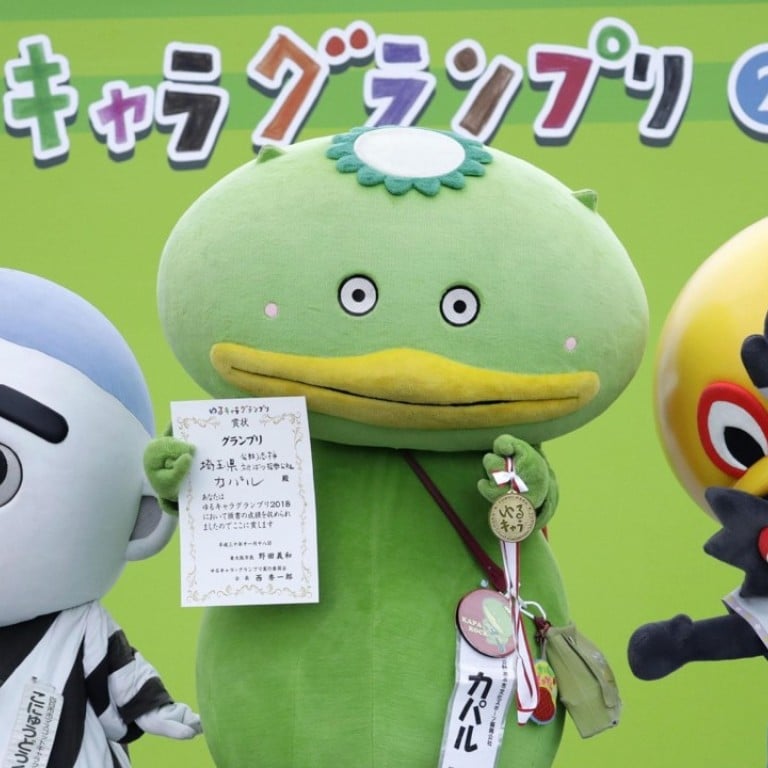
‘Deep shame’ as goblin wins Japanese mascot contest amid vote-rigging claims
- Allegations of chicanery mar the win of Kaparu in the Yura Chara Grand Prix mascot festival in Osaka, as judges intervene to strip a rival of victory
A mythological pond sprite has claimed the prize for Japan’s best municipal mascot, although this year’s event was marred by allegations of skulduggery among rival towns competing for the honour.
Kaparu, a lime-green mascot with a wide mouth and a bald spot, won Sunday’s Yuru Chara Grand Prix 2018 at a mascot festival in Osaka that attracted a remarkable 507 representatives of towns and cities across Japan, as well as 402 company mascots.
Kaparu is based on the mythical “kappa” water goblins which, according to folklore, have webbed feet, adore cucumbers and are adept at getting into mischief. In children’s books, their pranks are fairly mild – but they escalate quickly to kidnapping children, drowning unsuspecting passers-by, raping women and even eating human flesh.
Kaparu, however, is a more cuddly character who has been dreamed up by the city of Shiki, in Saitama Prefecture, to promote local culture and sporting events.
Kaparu won 890,000 votes in an annual competition that a lot of people take extremely seriously.
Jabow, representing the city of Omuta in Fukuoka Prefecture, took second place in the competition, while third place went to Konyudo-kun, a boyish figure wearing a black-and-white striped kimono and with its tongue hanging out.
Konyudo-kun was competing for the town of Yokkaichi in Mie Prefecture and took an early lead in the contest with a whopping 1.18 million online votes but judges intervened when it became evident some chicanery had taken place in the voting.
Konyudo-kun was stripped of nearly 300,000 votes after it was learned officials from Yokkaichi had organised systematic voting for their local hero by setting up free email addresses that were given to anyone who agreed to vote for the character.
Jabow also lost votes for some underhand moves by officials in Omuta, as did the fourth-placed mascot, Inunakin, from Izumsano in Osaka Prefecture.
Masahiro Nakao, the mayor of Omuta, told the Mainichi newspaper he was “deeply ashamed” that Jabow had been stripped of votes but preferred to focus on the “outstanding result” of the mascot coming second in the whole country.
Shuichiro Nichi, the chairman of the organising committee for the event, issued a thinly veiled criticism of the various unscrupulous attempts to win the award, saying that the time when mascots “served as silver bullets” to promote regions as travel destinations has come and gone.

